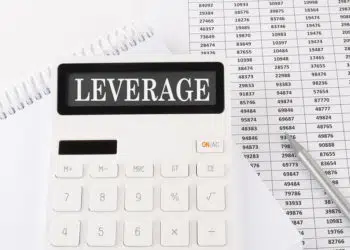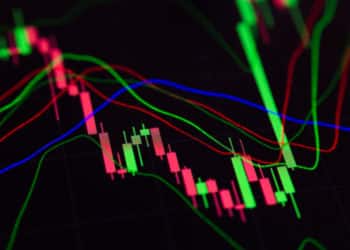Are you stuck with a losing streak in the forex market? It is easy to get caught up in the chase for profits in the forex market and repeat simple mistakes – you might not even realize you’re driving on the wrong side. The good news is that it is not too late for course-correction! Read along to know the top 10 mistakes you may be making while trading so that you change and proceed with caution.
1. Not Using a Demo Account
Most trading platforms provide you with a practice or demo account where you can undertake hypothetical trades. This is especially helpful if you’re just starting out or don’t have enough confidence to execute trades during a trading day. Using a practice account will help you get comfortable with the platform. As a novice, you may be prone to rush and click the wrong button. Sticky fingers will only out your account as well as your confidence and motivation at risk. Practicing without the pressure of the market will help you become proficient with your trades as well as get you in the right mindset.
2. Not Researching for a Reputable Broker
Forex trading is not as regulated as other markets – there is high probability you may end up with a less reputed or incompetent broker. Make sure your brokeris a member of the National Futures Association (NFA) and is registered with the Commodity Futures Trading Commision (CFTC) as a sutures commission agent. You must also research a broker’s reviews, membership and license, referral, commissions, quantum of leverage and policies before committing.
3. Trading without a Strategy
To trade successfully and sustainably, you must have a flexible trading strategy that has been back-tested successfully. It is crucial to have an effective plan that you are confident with and know how to apply. If you don’t have trading strategy and trade on a whim, not only will you stress yourself out but you will also end up making unnecessary trades that may very likely result in huge losses.
4. Trading Mindlessly
One of the most common ways traders lose money in the market is when they can’t stop trading. Taking a cue from institutional traders, it is advised to not get in the habit of constantly chasing price. Features like the ability to trade short-term and volatile currency pairs makes forex trading really attractive. However, the market is known to move unexpected directions which can cause you undue stress. More often than not, the best strategy may be to not trade – you need to be patient and in control to view it as a sign of strength instead of weakness. This way, you can place better winning bets in the market instead of mindlessly chasing losing trades.
5. Going All In
When the time comes for you to start trading with actual money at stake, it is crucial you start small and go steady. Simulation trading does not expose you to the real-time emotions of trading or prepare you for real market situations like slippage. Even though your trading plan may have performed well during back-testing, there’s always a chance that it may fail to work in the real world. Live trading is the best teacher and therefore it is essential to start small and adapt to the real market and raise the stakes as you go.
6. Not Treating Trading as a Business
It’s crucial for you to treat trading as a business and not just something you do to kill time. Set realistic expectations, commit to learn and don’t be discouraged by the losses or inflated with daily profits. Treat it as another day in your office and make sure your trading pattern is solid that you detach your emotions while trading. Trading forex, like any other business, goes through cyclical periods wherein you pay taxes, incur losses, risks and so on. Forex trading doesn’t reward you in a few days or months – you need to consistently show up, trade smartly with a plan, set realistic goals and learn from both your profits and your losses.
7. Over-Trading
Over-trading is one of reasons that Forex trading keeps you from making the amount of money that you have the potential to. If you enter and exit the market often, you will not only lose trades but also gather a lot of fees through commissions, etc. You don’t need to make a lot of trades to become successful, they just need to make some smart, planned and calculated trades.
8. Not Doing Your Homework
Experience from trading live in the market is your best teacher and guide but you must learn all about the market, the currencies and the factors that affect its prices like eco-geo-political changes before you even begin trading. The market and the factors affecting it change on a daily basis and it a part of trading to learn more every day. This will always keep you one step ahead of the curve and help you adapt to the uncertainty of the market.
9. Poor Risk Management
The volume of your trade doesn’t matter – you need to know how to manage your risk from the get-go. A solid forex risk management strategy includes forming a healthy attitude to risk, setting a risk/reward ratio, deciding percentage of account balance and size of position for each trade. It also means you need to set stop-losses to protect against extremes. Risk management should be the foundation when you start trading in the market to ensure sustainable profits along the way.
10. Not using Stop Loss
When you enter a trade without any instructions about the closing order, you’re basically gambling – you’re putting the money in your account at risk. Stop-loss plays an important role as it informs the investor to sell the security when it hits a certain price. It is used to limit huge losses or even massive gains when dealing in a particular currency pair.
Final Thoughts
Forex trading is quite attractive as it allows you to trade round-the-clock, with minimal account requirements and access to a bigger quantum of leverage. As a business, trading forex can prove quite rewarding. However, it takes a lot of time, consistent effort, the right mind-set and a fool-proof strategy. It is advised to do proper research and study of the market, start steady and small, have a sound risk management strategy in place to trade consistently and improve your odds in the long-run.







